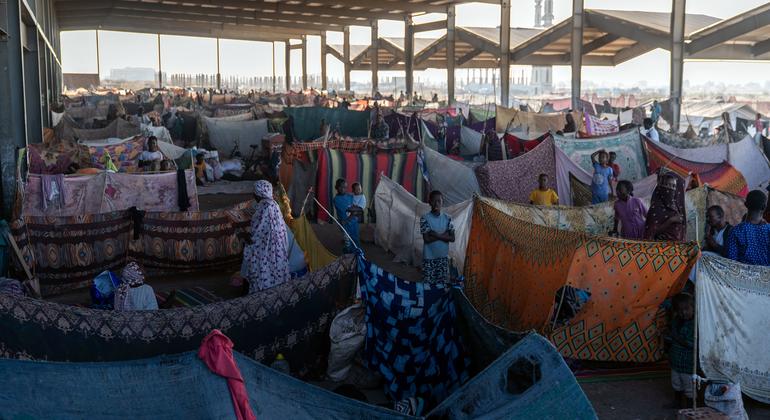Sure! Here’s the translation into American English:
—
With the emergence of relatively safe areas in Sudan, over 1.3 million Sudanese have begun to return home, according to reports from UN agencies. This group includes around one million internally displaced persons and more than 300,000 refugees who had found asylum in neighboring countries due to the violence and chaos that have characterized the region in recent years. Othman Belbeisi, the regional director of the International Organization for Migration (IOM), emphasized that “the thousands of people seeking to return home are driven by hope, resilience, and a lasting connection to their country.”
Although the return is an encouraging development, the challenges are significant. Many of these individuals are returning to areas where resources have been devastated after more than two years of armed conflict. Since the outbreak of violence in April 2023, more than twelve million Sudanese have been forced to leave their homes, making it one of the most severe displacement crises globally. Approximately one-third of them have sought shelter in neighboring nations like Chad and South Sudan, which are now facing increasing difficulties in managing the influx of refugees.
Mamadou Dian Balde, the regional coordinator for the United Nations Refugee Agency (UNHCR), warned that the increase in the number of returns may be a hopeful change but also puts considerable pressure on the countries that have welcomed the displaced. According to the IOM, the return must be voluntary and dignified. Most returning Sudanese are relocating to the states of Khartoum, Al Jazirah, and Sennar, where the impact of the conflict continues to be alarming. In Khartoum, public infrastructure has suffered severe damage, including essential buildings like the UNHCR office, making the return process even more complicated.
Abdallah Al Dardair, director of the United Nations Development Programme (UNDP), highlighted the urgent need for action to address the situation: “Without immediate actions, people will return to crumbling cities. We are in a race against time to clear the rubble and provide basic services,” he stated.
Those returning also face serious dangers, including the threat of unexploded ordnance and a worrying rise in gender-based violence. To mitigate these risks, safe spaces have been established in Khartoum and Al Jazirah aimed specifically at protecting women and girls.
Despite the critical humanitarian situation, Belbeisi stressed the importance of viewing returnees as agents of change and rebuilding. “They are not just survivors; they are essential to revitalizing our communities and local economies,” he asserted. However, the humanitarian response is facing severe underfunding, as only 23% of the $4.2 billion needed for next year has been secured, which could lead to a decline in vital services.
This massive return is not only indicative of people’s desire to come back home but also an urgent call to end the conflict and allow Sudanese individuals to rebuild their lives.
—
Referrer: MiMub in Spanish











